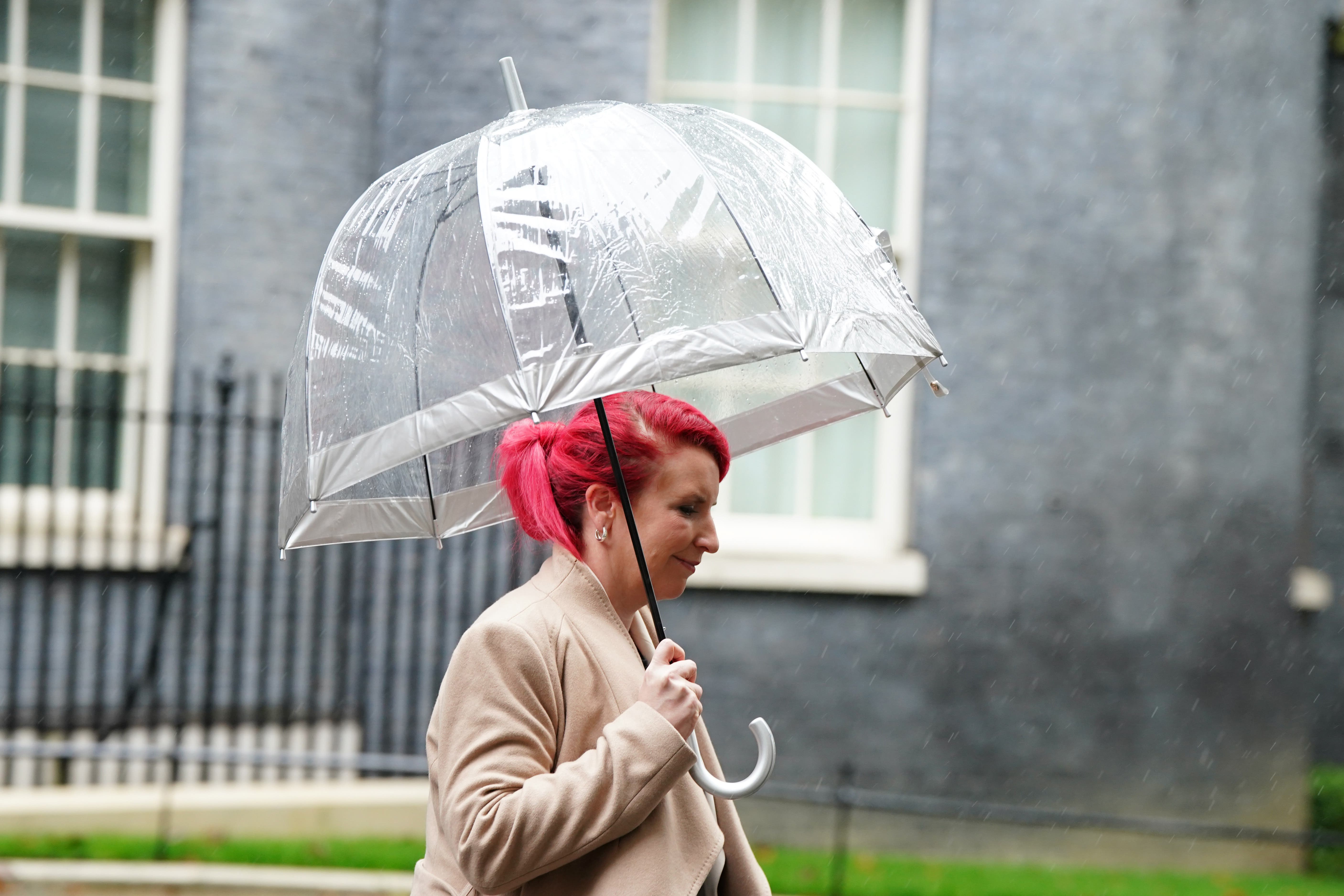Will Louise Haigh be the first minister to be forced out of office?
The transport secretary – who agreed a ‘no strings’ pay deal with train drivers and jeopardised the government’s investment summit – is fast running out of lives, says John Rentoul


Before the election, I predicted that Yvette Cooper might be the first minister in the incoming government to come under pressure. I thought that, given her responsibility as home secretary for “smashing the gangs” that run the small boat traffic across the Channel, she was guaranteed to fail.
Nor have her efforts, so far, been a great success. It took 10 embarrassing weeks for a “border security commander” to be appointed. The number of people coming across the Channel is running at about the same level as last year.
And today it was revealed that the government has asked hotel providers to come forward with more spaces to accommodate asylum seekers, as the numbers continue to rise. Instead of the manifesto promise to “end asylum hotels, saving the taxpayer billions of pounds”, Cooper is buying more places, costing the taxpayer more.
But she faces surprise competition for the title of Most Blundersome Cabinet Minister from Louise Haigh, the transport secretary. Haigh’s first task on coming to office was to settle the train drivers’ dispute that had been intermittently paralysing the rail network for two years. She set about it with an excess of zeal.
She struck a deal with Aslef, the train drivers’ union, with admirable speed but an absence of political nous. She gave Aslef the money, but failed to attach any words to it about reforming working practices. This gave the Conservatives an open goal, accusing Labour of handing a big pay rise to workers on salaries of £60,000 while taking away winter fuel payments from pensioners on as little as £12,000 a year.
Haigh’s colleagues were sent naked into the broadcast studios to defend this unfairness – not even able to talk up the prospects of efficiency gains from reformed working practices.
Still, anyone can make mistakes, and this is a new government. But then, 48 hours after Haigh signed the deal with Mick Whelan, the leader of Aslef, Whelan announced a new wave of separate strikes on the North East line. Having got what he wanted in the national deal, he seemed to be mocking her weakness. It was an appalling insult to a minister who had promised to work “hand in glove” with the union. Although those strikes were later called off, she had been made to look foolish.
Then came the P&O kerfuffle. On this, my sympathies are entirely with Haigh. The ferry company behaved disgracefully in 2022 when it fired 800 employees and replaced them with agency workers. It wasn’t exactly “fire and rehire”, because the company didn’t offer to rehire the workers it had fired, but Haigh and Angela Rayner, the deputy prime minister, cited the incident as an example of bad practice when they announced a law banning fire and rehire last week.
The press release for the Employment Rights Bill described P&O as a “rogue employer”, and Haigh went further in an interview to promote the bill, saying that she did not use P&O and would encourage other people to boycott the company as well. These were mistakes. What she and Rayner should have said was that P&O had behaved disgracefully in the past and that they were delighted that the company had now signed up to a statement of employment best practice.
This might have avoided the embarrassment of DP World, the Dubai-based owner of P&O, briefly withdrawing from Monday’s investment jamboree in London before sulkily agreeing to turn up after some frantic damage-limitation work was carried out behind the scenes.
Jonathan Reynolds, the business secretary, was not exactly sent naked into Laura Kuenssberg’s studio on Sunday, and he handled it well – but Haigh’s posturing, behaving as if she were still in opposition, had not made it easy for him.
Now Whelan has struck again. Aslef is going to bring the London Underground to a halt on two days next month – and members of RMT, the other rail union, are taking separate strike action around the same time.
Haigh is not responsible for negotiations between Transport for London and the trade unions, but this is the sort of thing that she and Sadiq Khan, the mayor of London, were elected to put an end to. No wonder she has been promoted to the top of the list in that cruel Westminster parlour game: Who will be first out of the cabinet?
If Morgan McSweeney, Keir Starmer’s new chief of staff, is going to be “more political” in running No 10, what is he likely to think of someone who nominated Jeremy Corbyn for the leadership in 2015 (the other cabinet minister who did is David Lammy, the foreign secretary), and who seems to enjoy her reputation as the most “left-wing” member of the cabinet?
Of course, it is most unlikely that she will be the first out. Lone cabinet ministers tend to be felled by scandals that come out of the blue, whereas mere bunglers tend to survive until the next reshuffle. Meanwhile, the home secretary must be feeling more secure than she did when she took office.
Join our commenting forum
Join thought-provoking conversations, follow other Independent readers and see their replies
Comments
Bookmark popover
Removed from bookmarks